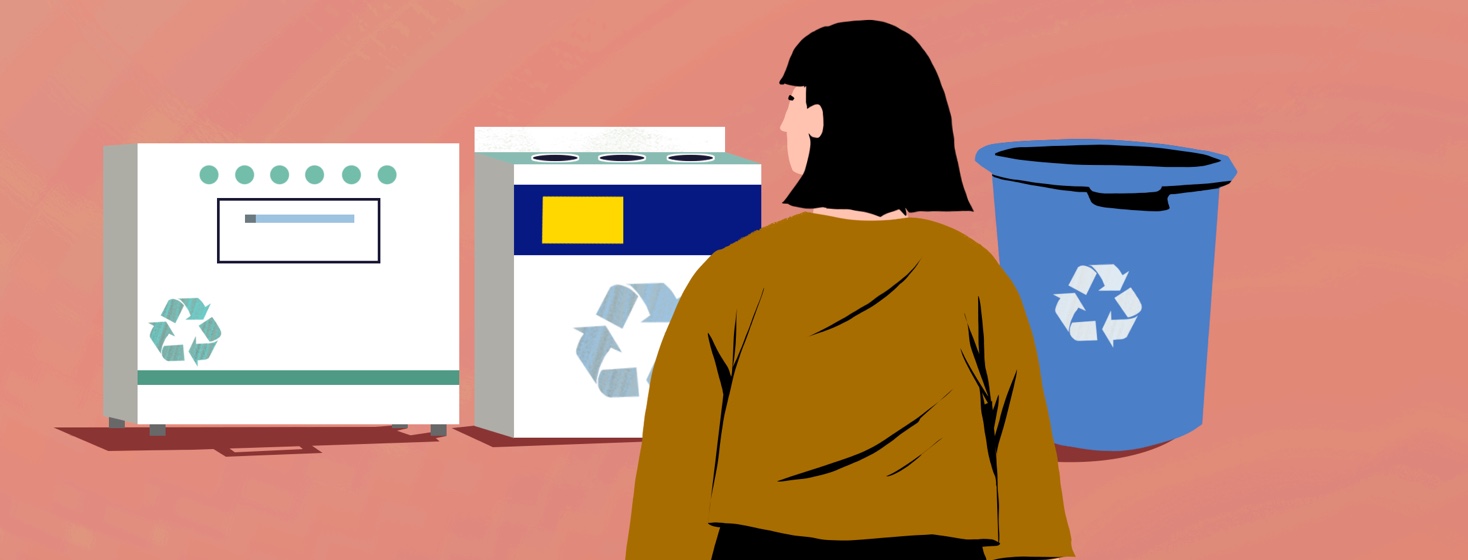Electronic Devices: Recycling and Disposal
If you live with macular degeneration, you may use various adaptive devices to improve your visual function. Performing everyday tasks can be a lot easier when you have a magnifier, high-intensity lamp, and pocket-sized telescope.1
CCTVs and video magnifiers
One high-tech aid, the closed-circuit television, also called a CCTV or video magnifier, can be helpful for everything from writing notes to reading a medicine bottle to viewing photos. CCTVs can be freestanding units, or “desktop” systems, which have a monitor placed above a flat platform. With this “desktop” system, the user puts the material to be read on the platform, then moves around the platform in order to read. The material is viewed on the monitor and may be magnified as much as the user wants.2
There are also tablet-based systems that start with a computer and then specialized software and hardware are added to this. The user gets all the features of a tablet computer along with specialized video magnification features. These systems usually feature text-to-speech as well as OCR (Optical Character Recognition). CCTVs can be incredibly helpful for a person living with macular degeneration.2
Recycling reponsibly
Whatever electronic devices you choose, at some point you’ll want to know how to responsibly recycle and dispose of them. Electronic devices are made from metals, plastic, and glass – all valuable materials that take energy to manufacture. Recycling them can conserve natural resources and help avoid air and water pollution. Recycling also helps avoid the greenhouse gas emissions that are caused by manufacturing new materials. Recycling 1 million laptops saves the equivalent to the electricity that is used by more than 3,500 homes in the United States in just 1 year.
When electronics aren’t recycled responsibly, they can end up in a local landfill where they can corrode, crack, and leak toxic metals. If they are burned, they can release toxic, cancer-causing chemicals into the air.4
The electronics recycling industry is not always what it seems either. Some scrap haulers who advertise environmentally friendly practices actually dump their stockpiles in landfills in the United States or overseas.5
Resources to help you recycle
If you’re wondering where you can responsibly recycle or dispose of your electronic devices, there are a number of options you can check out.
Amazon's collection bins
Amazon set up a test of electronics collection bins in November 2019. The bins are in 10 U.S. cities, and they accept audio/video devices, tablets, eReaders, and small electronics. They do not accept batteries, appliances, or large electronics. For more information, you can check out Amazon Locker locations. Amazon also runs Second Chance, which lets you pass on or recycle a variety of items.
Staples's recycling services
Staples offers free recycling services for many items like Readers, digital projectors, and all-in-one computers. The stores do not accept appliances, batteries, or smoke detectors.
Best Buy's recycling program
Best Buy’s free recycling program lets each household recycle 3 items daily. These items can include TVs, tablets, camcorders, video games, and more. Best Buy notes on its website that it has collected more than 2 billion pounds of electronics and appliances for recycling, which makes it the largest retail collection program in the United States.
eStewards organization
The organization eStewards promotes responsible electronics reuse and recycling best practices worldwide. Through this organization you can find a reputable recycler and also learn more about responsible recycling.
SERI
You also can find a responsible recycler through SERI (Sustainable Electronics Recycling International), a nonprofit group that helps people reuse and recycle electronic products in a responsible way.
EPEAT Registry
The government’s EPEAT Registry, a global registry for sustainable electronics, is a user-friendly resource for some purchasers who are in the market for environmentally preferable products.

Join the conversation